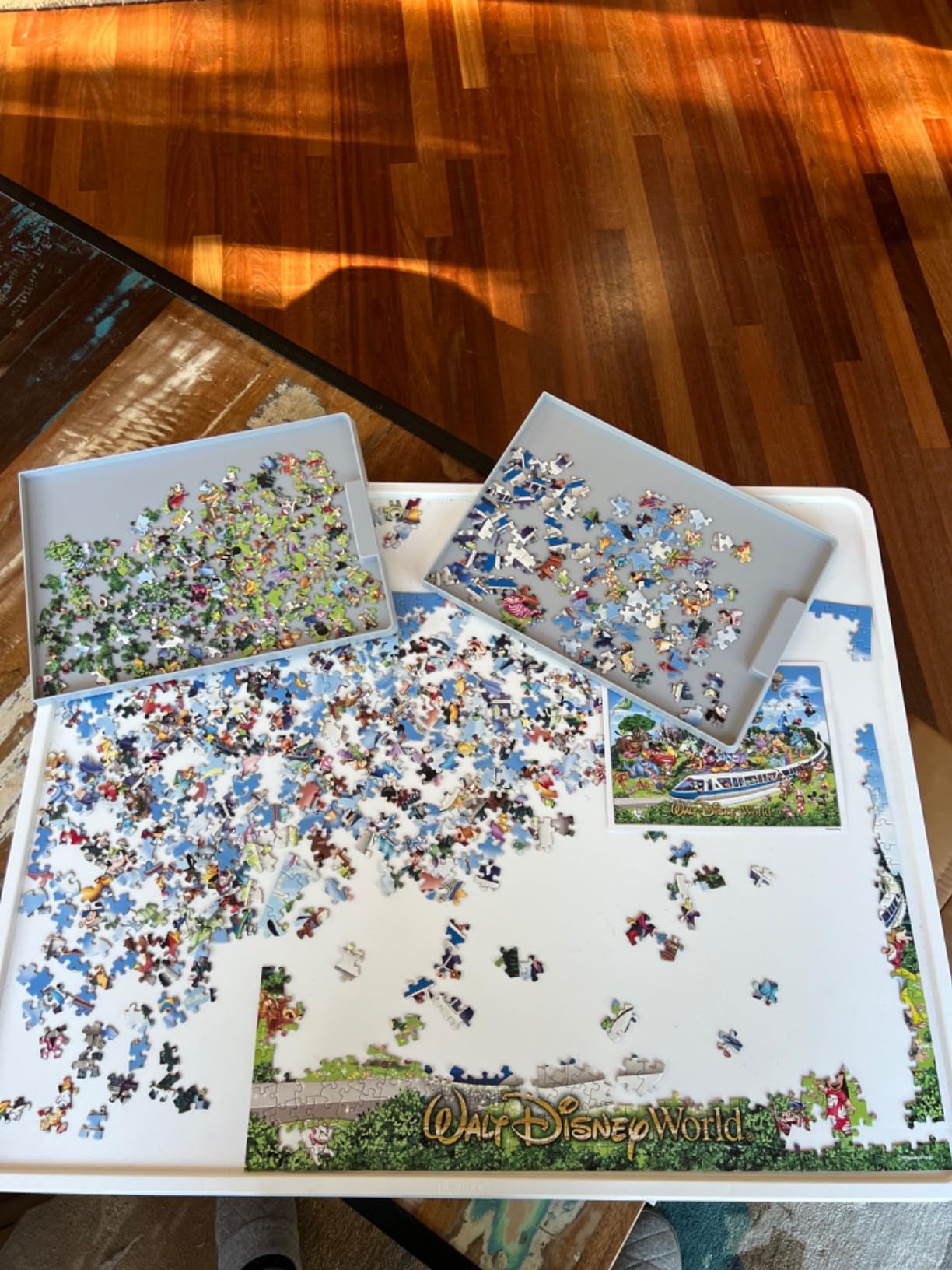Home
Playboda Puzzle Blog
Rotating vs Tilting: Which Puzzle Board Actually Saves Your Neck (and Your Reach)?

Rotating vs Tilting: Which Puzzle Board Actually Saves Your Neck (and Your Reach)?
Rotating vs Tilting: Which Puzzle Board Actually Saves Your Neck (and Your Reach)?
Why These Boards Exist
If you’ve ever worked on a 1000-piece puzzle at your dining table, you know the struggle: one side feels a mile away. You stretch, you stand, maybe you even nudge the table to get closer. Then after a while, your neck starts to ache from leaning forward.
That’s why puzzle boards come in two clever designs. Rotating boards bring the puzzle closer with a simple spin, while tilting boards lift the angle so you can sit upright. And yes, some combine both—because most of us deal with both problems.
The Rotating Experience
I remember finishing a sky section on a rotating board. Instead of dragging my arm across the puzzle, I just nudged the board a little. Suddenly, the edge I needed was right in front of me.
Rotating feels simple but makes a big difference:
-
No awkward reaches—just a smooth spin.
-
Everyone at the table can take turns without switching seats.
-
Sorting feels neater when you keep color groups in front of you.

The Tilting Difference
Long puzzling sessions are when tilting really shines. With the board angled up, I can sit back in my chair instead of hunching over. The colors pop more clearly too—less glare, easier on the eyes.
A small tilt (10–15°) is often enough. You don’t need a big slope; just enough to keep your shoulders relaxed.
👉 Tilting Puzzle Board with Stand

When You Don’t Want to Choose
Some nights I tilt the board for comfort, then rotate it so my daughter can work on the corners she loves. That’s where a 2-in-1 board comes in—it saves your body and makes puzzling together smoother.
What to look for in a good 2-in-1:
-
Stable, wide base for smooth rotation.
-
Adjustable tilt settings, easy to lock.
-
Lightweight but sturdy (ABS is great).
-
Enough surface for 1000–1500 pieces.
-
Optional drawers or cover for storage and pet-proofing.
👉 2-in-1 Rotating + Tilting Puzzle Board
Everyday Tips for Smoother Puzzling
-
Adjust your chair first, then set the tilt.
-
Rotate in small steps—pieces stay in place.
-
Soft lighting + neutral surface = easier color match.
- Use drawers for edge pieces or tricky colors. Tomorrow-you will thank today-you.
👉 2-in-1 Rotating + Tilting Puzzle Board

Quick FAQ
Will rotating scatter my pieces?
Not if the base is stable. Just rotate gently.
What tilt angle should I try?
Start with 10–15°. Enough to relax your shoulders.
Can it handle 1500 pieces?
Yes—look for boards around 32"x24"–35"x27".
👉 1500 PCS Puzzle Board
Is ABS really better than wood?
ABS is lighter, easy to carry, and cleans in seconds. Wood looks nice but can be heavy.
What about cats?
Get a cover. It keeps pieces safe overnight.
👉 Puzzle Board with Cover

Share
